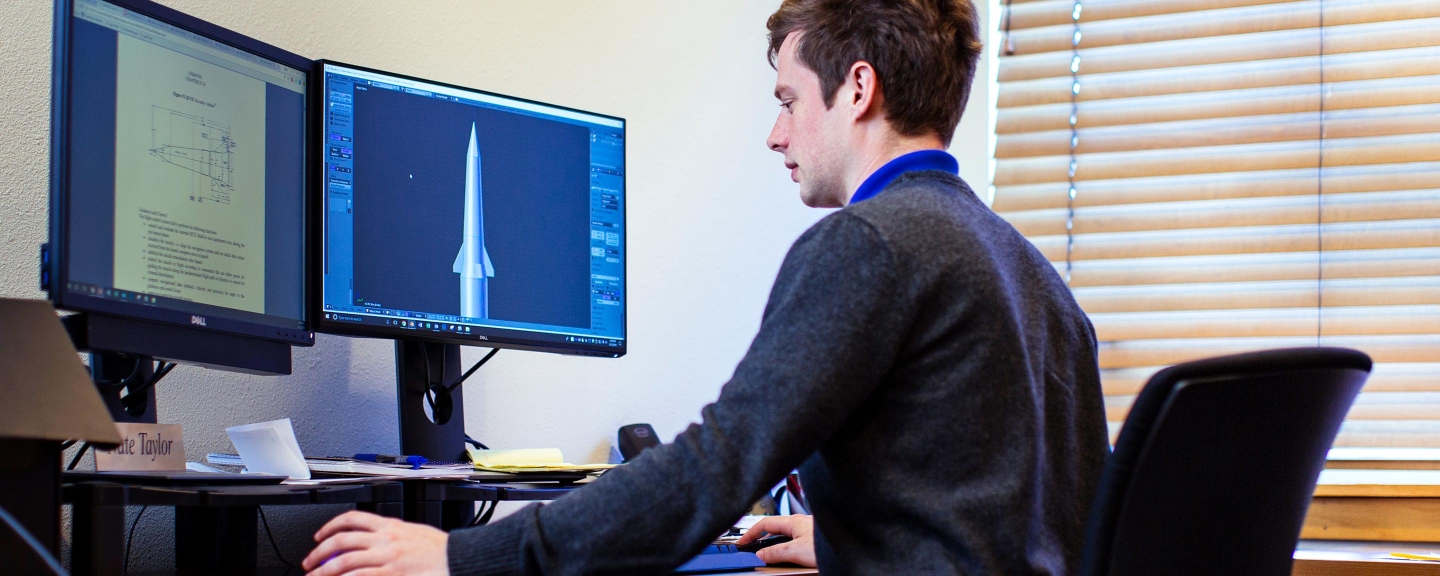In the News: In New York Times Op-Ed., Hanna Notte Discusses Putin’s Next Move
A nonproliferation expert with the James Martin Center for Nonproliferation Studies, Notte says the Russian president is now poised to escalate the war in Ukraine.

The James Martin Center for Nonproliferation Studies (CNS) is the largest nongovernmental organization in the world devoted to curbing the spread of weapons of mass destruction—and the only organization dedicated exclusively to graduate education and research.
Founded by Professor William Potter in 1989 and with locations on campus in Monterey, Washington, D.C., and Vienna, Austria, CNS offers a range of educational, internship, and fellowship opportunities for Institute students. CNS experts, a number of whom are former senior government officials, are an unparalleled resource for Middlebury students.
As part of its educational mission, CNS sponsors a number of training programs and learning opportunities, including on-the-job research assistantships.
Follows worldwide developments related to the proliferation of chemical and biological weapons and the negotiation and implementation of related arms control treaties and nonproliferation or counterproliferation measures. Conducts preparedness planning and training for local, state, and federal officials on incidents of chemical and biological terrorism.
Conducts research on nonproliferation issues involving East Asia, utilizing a variety of innovative open-source methodologies, including imagery analysis, 3D modeling, and other advanced analytical tools. The EANP operates one of the most comprehensive open-source electronic databases on Chinese arms control and nonproliferation developments. Some of its key research projects focus on the security implications of the nuclear fuel cycle in Asia, North Korean nuclear and missile developments, and proliferation financing in East Asia.
Provides training and research opportunities to a multidisciplinary community of nonproliferation specialists throughout the former Soviet Union, supports the introduction of nonproliferation courses and material in the universities of Soviet successor states, facilitates the integration of these specialists into the broader group of international nonproliferation experts, and publishes timely material about Russia and post-Soviet proliferation developments. Also maintains a comprehensive, unclassified database on nuclear issues involving the former Soviet Union.
Performs export control-related research, training, and industry engagement projects. Training programs are designed to build export control and nonproliferation awareness among practitioners in government, industry, and academia. Research areas include multilateral export control developments; proliferation finance; reform of national export control systems; industry outreach; and transnational challenges to nonproliferation export controls such as illicit WMD-related procurement networks and emerging dual-use technologies, including additive manufacturing (also known as 3D printing).
Conducts research and policy analysis on the new roles and activities of international organizations as they deal with continuing and emerging proliferation concerns. The IONP promotes and assists the implementation of international treaties and measures aimed at the nonproliferation and elimination of weapons of mass destruction. Through the IONP program, CNS engages international organizations and the diplomatic community on disarmament and nonproliferation issues, provides analysis, and facilitates dialogue among key actors.
Currently based in the Washington, D.C. office, focuses on preventing the spread of WMD in the Middle East. In addition to research, it provides a number of innovative and internationally recognized initiatives, including the Middle East Next Generation Program of Arms Control Specialists Network, designed to build a community of young nonproliferation specialists from states throughout the Middle East.
Supports the CNS mission through its Visiting Fellows program (professional development program for diplomats, practitioners, and academics); the Critical Issues Forum, a unique global disarmament and nonproliferation education program for high school students; recruitment of prospective NPTS students; employment of graduate research assistants at CNS; and the Summer Undergraduate Nonproliferation Program.
CNS experts teach classes in the MA in Nonproliferation and Terrorism Studies, Dual Degree with Moscow State Institute of International Relations (MGIMO), and the Certificate in Nonproliferation Studies. CNS also provides students in these programs with a wealth of resources, including opportunities for internships and research.
CNS offers a broad range of exceptional opportunities for internships and fellowships throughout the year. They are designed for both undergraduate and graduate students who want to work and/or conduct research at locations in Washington, D.C., New York, Vienna, Geneva, the Hague, and Mexico City.
CNS writes and distributes several ongoing publications:
The Inventory of International Nonproliferation Organizations and Regimes
NukeTube Nonproliferation Multimedia Library
Monterey, California
The James Martin Center for Nonproliferation Studies
460 Pierce Street
Monterey, CA 93940
(831) 647-4154
Washington, D.C.
James Martin Center for Nonproliferation Studies
1400 K Street, NW, Suite 1225
Washington, DC 20005
(202) 842-3100
Visit the CNS website for more detailed information.
A nonproliferation expert with the James Martin Center for Nonproliferation Studies, Notte says the Russian president is now poised to escalate the war in Ukraine.
| by Caitlin Fillmore
Three leaders from the James Martin Center for Nonproliferation Studies (CNS) raise the alarm about the ongoing threat of radiological weapons in their new book, which was recently excerpted in Foreign Affairs.
| by Sierra Abukins
In a New York Times op-ed, nonproliferation expert Hanna Notte sheds light on the dynamics between the Middle East and Russia.